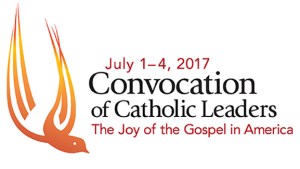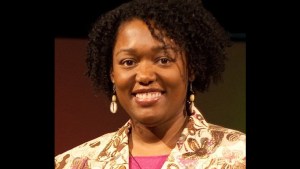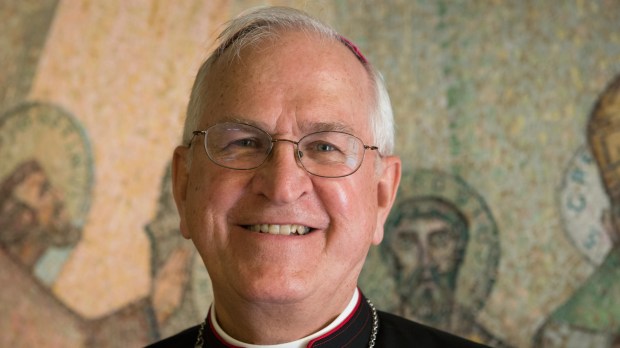More than 100 bishops are attending this weekend’s Convocation of Catholic Leaders in Orlando. One of them is Archbishop Joseph Kurtz of Louisville. As president of the U.S. Conference of Catholic Bishops from 2013 to 2016, Archbishop Kurtz had a hand in planning the convocation. In between meetings on a very busy Day 1 of the convocation, Archbishop Kurtz took a moment to speak with Aleteia.
Fr. Aquinas: When the bishops began to plan this convocation, what goals did they set for it?
Archbishop Kurtz: Since the beginning of our planning, the goals have somewhat evolved. The first goal was to explore how we believers, as evangelizers, ought to communicate the message of the gospel to the modern ear. How do we choose our language so that it is heard and understood and received?
Then, Pope Francis came along. With Evangelii Gaudium, we thought, “Wow! This is the perfect hand-in-glove—he’s the hand, we’re the glove—of talking about missionary disciples.” So, the goal shifted from exploring different means of communication to engaging and energizing missionary disciples. And our first target here is ourselves as parochial and diocesan leaders. We all bring different passions to our work; we all have different gifts and ministries. But we need to be united in discipleship and in preaching the gospel.
This conference is meant, therefore, not only to inspire and encourage missionary disciples but also to unleash some creativity in this regard. Thus the essential work of the conference will unfold on the last day as the different diocesan groups come together to share and collect the ideas that they will take home with them.

Read more:
Convocation of Catholic Leaders kicks off today in Orlando
Fr. Aquinas: To those who scratch their heads over the term “missionary disciple,” how would you explain it?
Archbishop Kurtz: The term came from the Aparecida Document published in 2007 by the Latin American Bishops Conference. This document came to worldwide prominence in 2013 after Pope Francis’ election; as Cardinal Bergoglio, Pope Francis played a large role in writing the document.
At Aparecida [Brazil], the bishops of Central and South America affirmed that, first of all, believers need to be disciples who day to day follow the Lord. As disciples, believers need to deepen their experience of the Lord Jesus. They need to deepen their understanding of the faith. They need to deepen their community with each other. And then, as disciples, they need to witness, which is the missionary part of the believer’s life. To be a missionary disciple, therefore, is to be a believer who puts these two things together—to experience Christ and to witness to Christ.
For examples of missionary discipleship, we need look no further than the apostles. They were enlivened by the resurrection of Jesus, and they witnessed to its power.
Fr. Aquinas: What are some of the challenges that you see impeding Christians today from living as missionary disciples?
Archbishop Kurtz: One of the challenges is, as Cardinal Weurl calls it, the “tsunami of secularism”—the notion that the question of faith is irrelevant to life, that one can get along in life without acknowledging God. We live in both the best and worst of times; people have so many opportunities, but they live in the illusion of being free to do whatever they want. But the fruit of living this way is not liberty but unhappiness. We see everywhere in people the thirst and restlessness that St. Augustine talked about. It is a challenge that so many do not slow down enough to become aware of this restlessness in them.
Another challenge is the opposition that many place between faith and science. For example, just this morning I was listening to a TED talk on the universe, and it was very interesting. However, anyone listening to this talk might conclude that all of reality is reducible to the laws of nature, or that the laws of nature possess the creative powers of God. Here, too, we see dismissed almost out of hand the notion that faith may be necessary to life.
Fr. Aquinas: When you look out on the American landscape, what are the signs of hope that you see in terms of forming missionary disciples?
Archbishop Kurtz: In every age, the sense of the emptiness of life without God is a sign of hope. This sense sounds like a symptom of some greater problem, but in fact it is a sign of hope. Those who experience this emptiness, especially the young, are those who become really energized by an experience of Jesus. They are the ones today becoming apostles.
I also see a sign of hope in the desire of people to serve. There is a real desire out there to exercise sacrificial love—to serve others and to reach out in compassion to them.
~
For more information on the convocation, visit the convocation website. To follow the weekend’s events on social media, use the hashtag #CatholicConvo.

Read more:
Gloria Purvis on what the Church is doing right and where parishes can improve

